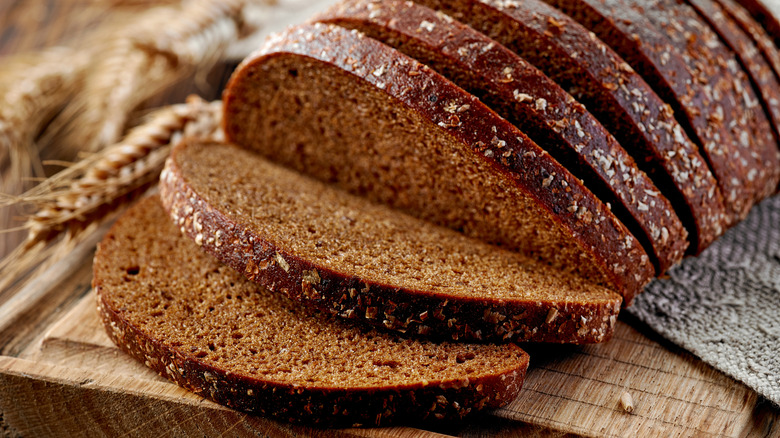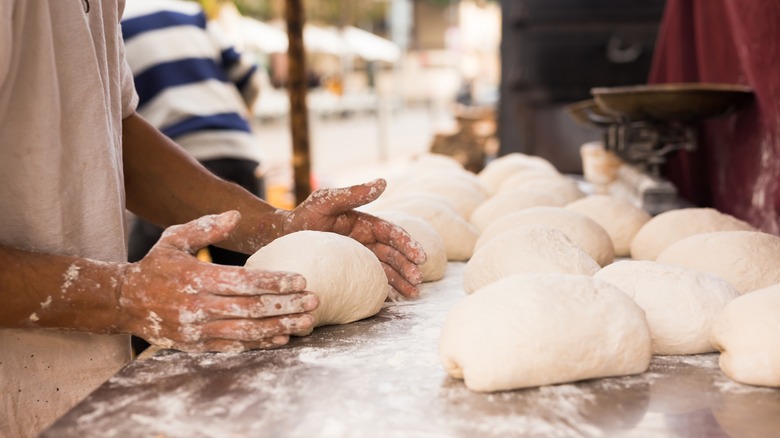The Key Shaping Tip To Remember With Homemade Rye Bread
We may receive a commission on purchases made from links.
Experimenting with different types of flour? Good for you. There's nothing like expanding your baking repertoire. However, if you're venturing into the world of rye flour, you'll find that it behaves a little differently from regular wheat flour.
We asked Nathan Myhrvold, founder of Modernist Cuisine and co-author of Modernist Bread at Home, for his tips on perfecting rye bread. "When working with breads that have a high percentage of rye flour, you'll find the dough consistency to be quite different," Myhrvold explains. "Very little gluten will form, so the mixture will have a texture more like modeling clay or even cookie dough. These doughs will be stickier and less able to hold their shape than wheat doughs."
This happens because rye, a relative of wheat and barley, has only about half the amount of gluten found in wheat flour. What's more, it contains other molecules called pentosans that form a sticky gel when combined with water, making it harder for gluten to develop into the networks that make other types of dough so springy and shapeable.
Patting makes perfect
What's a baker to do? Nathan Myhrvold shares his approach to picture-perfect rye bread loves. "You'll have to pat them into shape," he says. "They'll hold the shape, but putting them in a pan makes them easier to handle. Fortunately, rye doughs will become lighter in texture through proofing and baking and for most breads, you can skip the scoring step."
Once your rye bread is complete, you may be wondering what to do with it. Of course, the classic Reuben is one answer. It also lends itself well to cocktail bread for charcuterie boards. But don't be afraid to look beyond the obvious. Using rye flour in sweet treats like chocolate chip cookies can yield some exciting results. The sour and bitter flavor profile plays well against the sweetness of the chocolate, delivering complex tastes similar to those you might find in a craft beer. Rye flour also holds moisture well, preventing your cookies from going stale ... that is, if you don't gobble them up right away!

